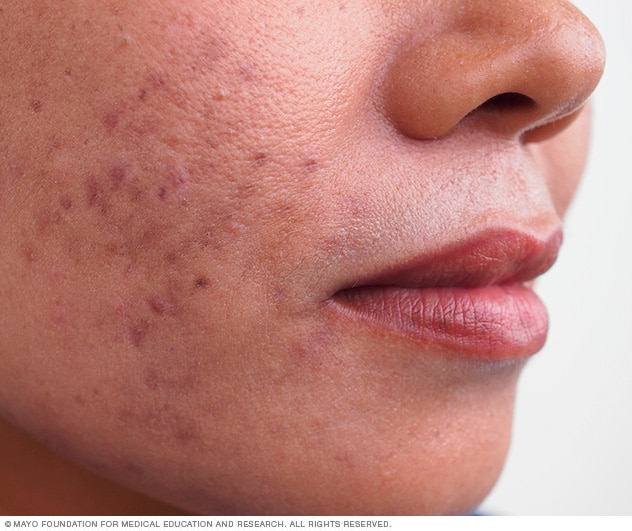
How To Get Rid of Acne Scars Naturally?
Acne scars are a common problem that can be avoided with proper care.
The purpose of this article is to share with you the most effective ways to get rid of acne scars.
If you have acne scars and you want to get rid of them, there are a few things you can do.
The best way to get rid of acne scars is to use proper skin care. It is important to take proper care of your skin and also make sure you are not using the wrong products that could cause acne scars in the first place.
With acne scars, it is not possible to cover them up completely. There are many factors that can contribute to acne scars. Some of these factors are hereditary and some are caused by external factors like sun exposure and pollution.
The person who has acne scars is a person who really needs to look good. He should have the perfect skin and the perfect makeup, just like the people on TV.
A lot of people suffer from acne scars. They can be caused by too much makeup, too much sun exposure, or even chemical peels.
With acne scars, you can't just wash your face and expect to get rid of the scars.
A lot of people want to get rid of acne scars. This is because they are not only ugly, but also difficult to remove.
The main problem with acne scar removal is that it requires a lot of time and effort. You might have tried many different products, but none have worked for you.
The skin is the largest organ of our body. It is also the most sensitive one. Skin diseases like acne scars are a common problem for many people.
There are many ways to get rid of acne scars. However, one of the most popular techniques is laser treatment.
The skin is an organ that plays a very important role in the health and well-being of the body. The skin is also the most sensitive part of our body. It's also one of the most vulnerable parts of our bodies. Therefore, it’s important to take care about it since acne scars are a sign of aging and can be easily cured with proper treatment.
The first step in getting rid of acne scars is to get rid of them before they become noticeable. This means that you should focus on your daily routine and make sure that you are taking good care of your skin by applying moisturizer, exfoliating regularly, drinking plenty water and eating healthy foods like fruit and vegetables as much as possible.
A lot of acne scars are caused by the skin cells that break down and fall off. This is a natural process, but if you have acne scars, you will probably want to eliminate them. The best way to do this is with a skin care product.
There had been a slew of tips and solutions to help you get rid of your acne. Most of these sought-after and even unsolicited advices have already been tried and rejected. Now, whether you opt to treat acne scars on your own or with the help of a qualified dermatologist, make sure you have realistic expectations.
People who prefer a more natural technique of treating acne scars opt for a home cure. Even home cures have minor side effects, but they are often skin-friendly and inexpensive. One of the exfoliants used in home remedies is baking soda. Combine one teaspoon of baking soda and one teaspoon of water in a small mixing bowl. Apply the baking soda paste to your acne scars and leave it on for one to two minutes before washing it off. Remember to use a non-oily moisturiser afterward.
Pineapple pulp is another home remedy. It contains ascorbic acid, which exfoliates and brightens your skin softly. Apply it to your face and leave it on for 10 to 15 minutes before rinsing. Papaya is another fruit pulp that can be used. This fruit extract is a popular ingredient in bath soaps for a reason. As a result, reap the advantages of the fruit directly. It's important to keep in mind that some fruits may take longer to heal acne scars. For little scars, it could take months, and for larger skin indentations, it could take years.
Both of you might decide on a set of skin care treatments to cure acne scars with the advice of a dermatologist. There are three types of acne scar treatments: non-ablative, semi-ablative, and ablative. The stimulation of collagen formation to replace the aged and rough skin is the common denominator of these treatments. If you can't afford these more expensive treatments, look for goods or solutions that include the body's collagen production and then exfoliate.
Non-ablative therapies require no medication and require little to no recovery time. Chemical peels, photofacials, V-beam lasers, and other treatments may be used. Semi-ablative treatments are slightly more aggressive skin care procedures that may necessitate some downtime. One example is fractional resurfacing. As early as the second session, significant benefits might be visible. Ablative therapies necessitate the use of drugs as well as at least seven days of recovery time. The majority of them have two forms of treatment and are also indicated for severe acne and acne scarring. Treatment with a CO2 laser and fibroblast cell growth factor (FGF) can stimulate the dermis, resulting in smoother skin. It requires dressing, therefore you won't be able to do it on your lunch or break..
